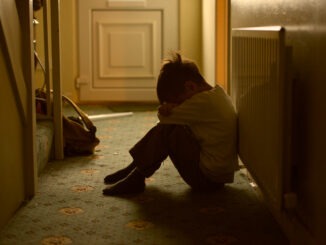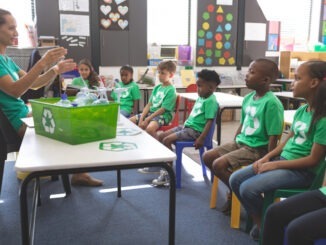
Gavin Williamson’s plan to create ‘behaviour hubs’ for schools is as dispiriting as it is predictable and unimaginative, says Carloyne Willow
CREDIT: This is an edited version of an article that originally appeared on The Guardian
Having worked in children’s policy for more than two decades, I found the government call for a crackdown on behaviour in schools as heart-sinking as it was predictable and unimaginative. The education secretary, Gavin Williamson, praised the “tremendous success” of remote learning during the pandemic but then warned that “the lack of regular structure and discipline will have, inevitably, had an effect on their behaviour”.
His solution? A series of so-called behaviour hubs intended to spread methods among schools and teachers, underpinned by a philosophy of coercion and control. This signals a government disconnected from children, and a lamentable lack of understanding of what helps human beings thrive, as individuals and together.
After a year like no other, the education secretary has resolved that confiscation of mobile ‘phones, and heavier threats of exclusion and detention, should be top priorities for children’s return to school. The Department for Education’s launch material includes a video of a mask-wearing chief executive explaining that his school “sweats the small stuff”, such as children forgetting equipment, not paying attention 100% of the time and “perhaps talking off-task”.
Politicians using children to make themselves look hard has a tragic inevitability about it, since this is a constituency without a single vote. This latest offering is, apparently, the brainchild of Williamson’s lead adviser on behaviour, Tom Bennett. The groundwork started with a review Bennett completed in 2017 for a previous education secretary; the application process for schools and multi-academy chains to apply to become behaviour hubs opened in the month before the first lockdown. Williamson’s pronouncement is actually Bennett’s work programme resuming, rather than any real-life assessment of the needs of children and families. We should demand more from the minister and his advisers.
A grim picture
A month after the first lockdown the Trussell Trust found that four-in-10 households reliant on food banks were families with children. In the first five months of 2020 Childline counselled nearly 7,000 children and young people with concerns about coronavirus. Then there are the friendships moved to screen-time, or no time at all, cordoned-off playgrounds and locked-up leisure centres, exam chaos and despair, children worried about their futures, with unemployment growing, and those who have dreamed of university facing great uncertainty. We have around 80,000 children in care in England, and many have gone for long periods without seeing their parents and siblings – and children have continued to enter care during lockdowns.
Despite all this vulnerable children, and those whose parents are key workers, have been getting up each morning and going to school, while all other children have been doing their best at home. Now the top idea the minister offers to address their multitude of needs after a year of the pandemic is simply to demand discipline. It is beyond dispiriting.
Which children might this latest behaviour crackdown hurt the most? Gypsy, Roma and Traveller children, children who have special educational needs, children who receive free school meals, black Caribbean children, and children in contact with our social care system are the most likely to be permanently excluded from school. Ofsted and children’s services leaders anticipate that the demand for help from social workers will increase once all children are back in school. The Child Poverty Action Group warns that for every classroom of 30 children, nine are living in poverty. Teachers and teaching assistants have been feeding children, supporting parents, washing clothes, delivering work to homes without computers and straddling face-to-face and online education throughout the pandemic.
Last November Gavin Williamson was found by the court of appeal to have acted unlawfully when he removed and diluted 65 safeguards for children in care without consulting the children’s commissioner or any other body concerned with children’s rights. My charity brought the case to defend fundamental child safeguards and to uphold government consultation duties. That’s the kind of thing we ought to be ‘sweating’ over as a society – not children breaching silent corridor rules, or forgetting pencils and PE kits.
This year is the 30th anniversary of the UK ratifying the UN convention on the rights of the child – a treaty forged from post-war understandings of child development and growing acknowledgment of the impact of deprivation, trauma and abuse on children’s minds, bodies and behaviour. Above all, this was intended to beckon in a new age where adults respect the equal worth and integrity of children.
If ever a country’s political class ought to give children a break, it would be now, in the middle of a global pandemic, when they have been through so much and shown such forbearance and fortitude.



Be the first to comment